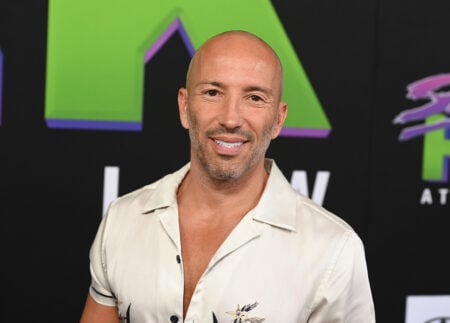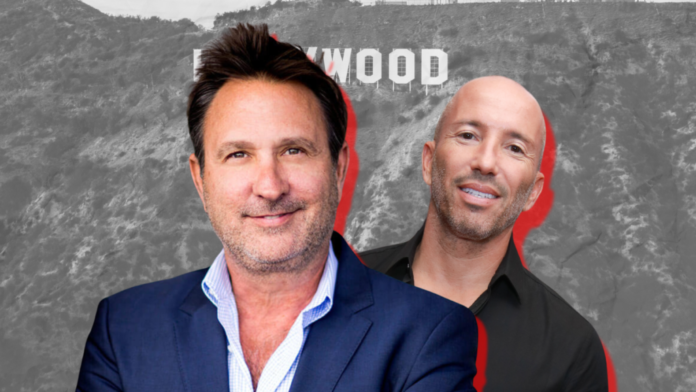Whether it’s refining your business model, mastering new technologies, or discovering strategies to capitalize on the next market surge, Inman Connect New York will prepare you to take bold steps forward. The Next Chapter is about to begin. Be part of it. Join us and thousands of real estate leaders Jan. 22-24, 2025.
When Douglas Elliman accused three escrow subsidiary employees of conspiring in an “illegal kickback” scheme alongside a celebrity broker last month, the industry indulged in a parlor game to uncover the identity of the famed Realtor.
Amid a flurry of lawsuits filed in the fall, Elliman executives accused employees of Portfolio Escrow, a company it acquired in 2020, of engaging in a commission-sharing scheme that began in January 2015 and involved “at least one high-profile Los Angeles real estate broker that is now a star of a reality television show.”
The well-known broker, according to a source close to the investigation, is Jason Oppenheim, founder of The Oppenheim Group and star of the Netflix reality series Selling Sunset, Inman has learned exclusively. Oppenheim acknowledged receiving payments from Portfolio Escrow in the past but denied wrongdoing and disputed the characterization of the arrangement as an “illegal kickback.”
“Whatever this particular structure [was], for that period of time, did occur,” Oppenheim told Inman. “But it’s something that once I was advised I shouldn’t be engaged in it, I didn’t — and I haven’t received anything before or since.”
In exchange for business from clients working with the broker, Douglas Elliman alleged in legal filings that officers at the escrow company paid the agent up to 20 percent of its revenue from escrow fees for each transaction the broker brought.
According to emails reviewed by Inman, escrow officers at Portfolio Escrow discussed a plan to send portions of their commissions — plus some from the company — back to Oppenheim. Two officers would send 7.5 percent of their commissions from the deals to Oppenheim, the emails show, and Portfolio would kick in another 5 percent from the company for a total of 20 percent.

Jason Oppenheim at the premiere of Disney+’s “She Hulk:
Attorney at Law” on Aug. 15, 2022, in Los Angeles. (Photo by Gilbert Flores / Variety via Getty Images)
Such an arrangement, if carried out, would have given Portfolio access to a steady stream of high-dollar transactions while netting Oppenheim additional revenue from his deals. It also likely would have violated laws that restrict payments between escrow companies and real estate professionals, according to compliance expert Summer Goralik.
“If a licensee in California — broker or salesperson — receives a commission, fee, or other consideration as compensation or inducement for referring customers to an independent escrow company, the [Department of Real Estate] would likely review that as a violation of real estate law,” said Goralik, a former real estate investigator in southern California.
Oppenheim speaks out
Oppenheim has gained notoriety as a Hollywood broker who routinely lands listings that can stretch past $100 million. His rising fame landed him a hit reality show, Selling Sunset on Netflix, which debuted in 2019 and chronicles the operations of The Oppenheim Group, the brokerage Oppenheim founded in November 2014.
The emails Inman reviewed were from 2015 and 2016. They did not include dates when Oppenheim was the star of Selling Sunset, and it’s not clear whether the agreement was carried out, how much money was exchanged and how many transactions the alleged agreement applied to.
When Inman spoke with Oppenheim about the allegations, he said he had closed transactions through Portfolio Escrow for several years over the course of running The Oppenheim Group. But he said he had not done so for at least the past couple of years. He recalled entering into a “structure” with Portfolio Escrow at one point, about 10 years ago, where the company could provide The Oppenheim Group with marketing dollars from transactions closed through Portfolio.
He said he didn’t remember details, but Oppenheim said he recalled a meeting with higher-ups at Portfolio in which he asked if the arrangement had been approved by accountants and legal counsel, to be sure that it was all above board.
“They assured me, up and down, that it was completely appropriate, and that they had run the structure by their company and their accountants and counsel, etc., and that it was an appropriate structure,” Oppenheim said.
His recollection was fuzzy, Oppenheim said, but he estimated that the payments continued for “maybe a year” and amounted to “a couple thousand a month,” which would have been a total of about $20,000 or so. He could not remember the details and said his bank does not keep records that extend beyond a 7-year period, so he could not verify how much money came in through the structure.
“I don’t mean to discredit the amount of money, but it was — it wasn’t a huge thing for me, obviously. I think [The Oppenheim Group has] done over $100 million.”
In its complaint, Douglas Elliman alleged that the unidentified broker — Oppenheim — received “over $100,000” from the arrangement.
About a year after the arrangement began, Oppenheim said his own legal counsel advised that he discontinue receiving marketing dollars from any third parties, whether or not they had been approved by accountants or counsel, because it “wasn’t worth the liabilities.”
The Oppenheim Group and Portfolio Escrow then terminated the structure, according to Oppenheim, and the brokerage continued to use Portfolio’s services for years afterward, without the marketing agreement.
Since then, Oppenheim added, he’s been approached several times by escrow and other service providers to create structured agreements that might involve ownership interest or other benefits and has always declined them, based on his attorney’s recommendation on that occasion 10 years ago.
Oppenheim said that calling the arrangement an “illegal kickback,” as stated in the Douglas Elliman complaint, was “not a fair characterization.” “By no means was it sold as some kickback,” he added. “I can’t even tell you how many times agents get together and do this. I’m not suggesting any nefarious nature. This is totally done, and these are agents that I respect and brokerages I respect. There’s no way they’re doing anything untoward.”
Representatives from Douglas Elliman referred questions on the matter and on the litigation involving Bill Grasska, the founder and former CEO of Portfolio Escrow, to Portfolio Escrow. Grasska is one of the three employees Douglas Elliman accused of conspiring in the arrangement.
Portfolio Escrow declined to comment on Oppenheim’s alleged involvement in any so-called kickbacks, and directed Inman to its lawsuit against Grasska.
Grasska did not respond to Inman’s requests for comment.
Paying 20%
The revelation comes as Douglas Elliman remains locked in legal battles related to its operations in California, including with Grasska.
Grasska founded Portfolio Escrow in June 2009, according to a filing he made with the state. Ten years later he and Douglas Elliman engaged to sell the business, and that deal closed in November 2020.
Grasska stayed on with the company until abruptly resigning in June 2024. In its complaint, Douglas Elliman said Grasska resigned only hours before it was set to fire him, days after placing him on leave and alerting him it had discovered alleged improper conduct.
Grasska filed a lawsuit against Douglas Elliman and Portfolio Escrow on Oct. 14. Less than two weeks later, Douglas Elliman filed suit against Grasska.
Bill Grasska
Both legal complaints include insights into the rocky breakup, along with the allegations of illegal activity made by both sides.
A third lawsuit involving Douglas Elliman of California is also making its way through the courts right now. In addition to sexual harassment allegations against Western Region brokerage operations head Stephen Kotler, that suit alleges senior managers inflated closing prices to provide kickbacks to certain Douglas Elliman agents. That suit was filed by Christina Carillo, former Newport Beach office executive manager of sales.
In its complaint, Douglas Elliman named Kari Yocam, Maria Trangelo-Molina and Grasska as the primary employees at Portfolio Escrow who carried out the arrangement with the “high-profile Los Angeles real estate broker” presumed to be Oppenheim.
Reached by phone for comment on Tuesday, Trangelo-Molina confirmed that she worked with Oppenheim.
“I was the second escrow officer who handled his account,” she said in a brief phone call with Inman.
When asked about the emails she sent in 2015 and 2016 that appear to outline the commission-sharing arrangement with Oppenheim, Trangelo-Molina hung up. She then texted to refer questions to Yocam, whose previous name is Trostler, and who Trangelo-Molina said was the account manager for Oppenheim while at Portfolio.
Yocam didn’t respond to requests for comment about the apparent arrangement. Her LinkedIn profile shows she left Portfolio Escrow in October. Trangelo-Molina didn’t respond to a written list of questions.
Meanwhile, Douglas Elliman’s complaint claims the arrangement was illegal.
“Bill Grasska’s illegal kickback arrangement, which he and his co-conspirators knew to be prohibited by the Real Estate Settlement Procedures Act, provided to the real estate broker up to twenty-percent of the total escrow fees for each transaction that the real estate broker provided to Bill Grasska and his co-conspirators,” Douglas Elliman attorneys wrote in the complaint.
The company said that Grasska and others created various companies to transfer the money between themselves and Oppenheim, an amount the company said exceeded $100,000.
Douglas Elliman alleged in its complaint that Grasska, Yocam and Trangelo-Molina provided “illegal kickbacks to various Realtors in the form of providing and paying for coffee cart services at open houses in exchange for the receipt of escrow business” since at least 2017.
“The California Department of Real Estate, the Department of Financial Protection and Innovation, the Los Angeles Police Department and the Internal Revenue Service have all been placed on notice of the improper activities referenced herein and evidence supporting [Douglas Elliman’s] claims is being provided to these agents,” the company wrote in its complaint.
Grasska has since become CEO of his own escrow business, Ravello Escrow, according to documents filed in October with the state of California. Douglas Elliman said that position violates non-compete agreements as part of the Portfolio Escrow sale.
The company said it was preparing “separate actions” against Yocam and another employee, Britney Geissel.
In Grasska’s complaint, he alleged that Portfolio was still engaged in illegal kickback schemes under the direction of Douglas Elliman, including agents who Grasska said received higher commission splits if their clients worked with Portfolio.
Portfolio claimed that Grasska’s






